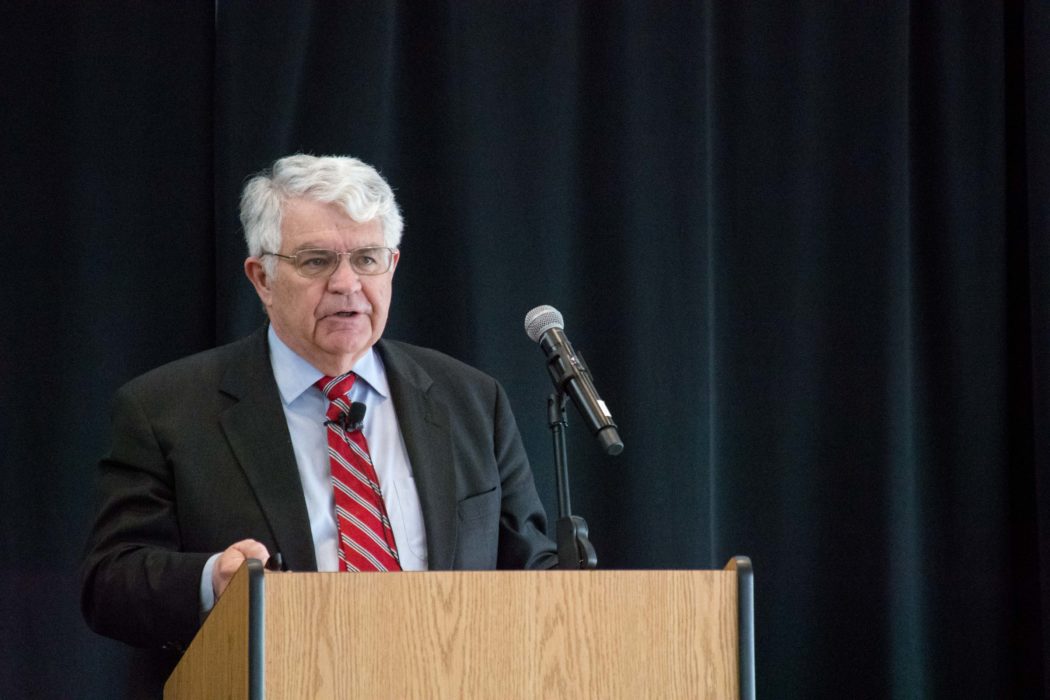Stanford University professor delivers lecture for Huntsman School students
As part of an event co-sponsored by the Jon M. Huntsman School of Business and the Center for Growth and Opportunity, John Taylor, economics professor at Stanford University, spoke Tuesday on the future of economic policy in the United States.
Taylor, Stanford economics professor and senior fellow in economics at the Hoover Institution, rejected The Economist’s interpretation of the US economy in their July 19, 2014 story, “America’s lost oomph,” in which the cover depicts an American jockey on top of a turtle. Rather, Taylor said, the economy could be likened to a caged eagle, and policy reform could cut open the cage for us to see better growth.
Taylor broke down policy reform into four categories: tax reform, regulatory inform, monetary reform and budget reform.
The Tax Cuts and Jobs Act, signed by President Trump in 2017, cut the corporate tax rate from 35 to 21 percent, which Taylor said would reduce the cost of capital, in turn raising investment, productivity, wages and economic growth. Generally, academic economists are split on the act, with no established consensus on how the plan would affect the GDP.
As far as regulation and trade go, Taylor said change in the form of executive orders, appointments and legislation have aided in growth, but that more legislation is needed, such as a proposed fourteenth chapter in the Financial Institution Bankruptcy Act outlined in Taylor’s 2017 testimony on the act.
Taylor emphasized the value of developing like-minded allies such as Canada or Mexico and creating specific goals, like reducing tariffs and restrictions of foreign investment in China.
“Going for ‘zero for zero’ is why we’ve been successful in moving toward free trade over time,” Taylor said.
Megan Hansen, the research director for the Center for Growth and Opportunity, asked Taylor about how immigration and immigration policy may affect the economy. The center is currently conducting research on crime rates among immigrants.
“Immigration is important for our country and it always has been,” Taylor said. “I don’t think of that as a reason for monetary policy or fiscal policy to change.”
In monetary policy, Taylor suggested that while the federal reserve has begun to “get back on track,” the United States still needs a budget that will get back on track as well.
“If the question is why the deficit is so big and growing,” Taylor said, “The problem is spending, and we need to come to grips with that.”

